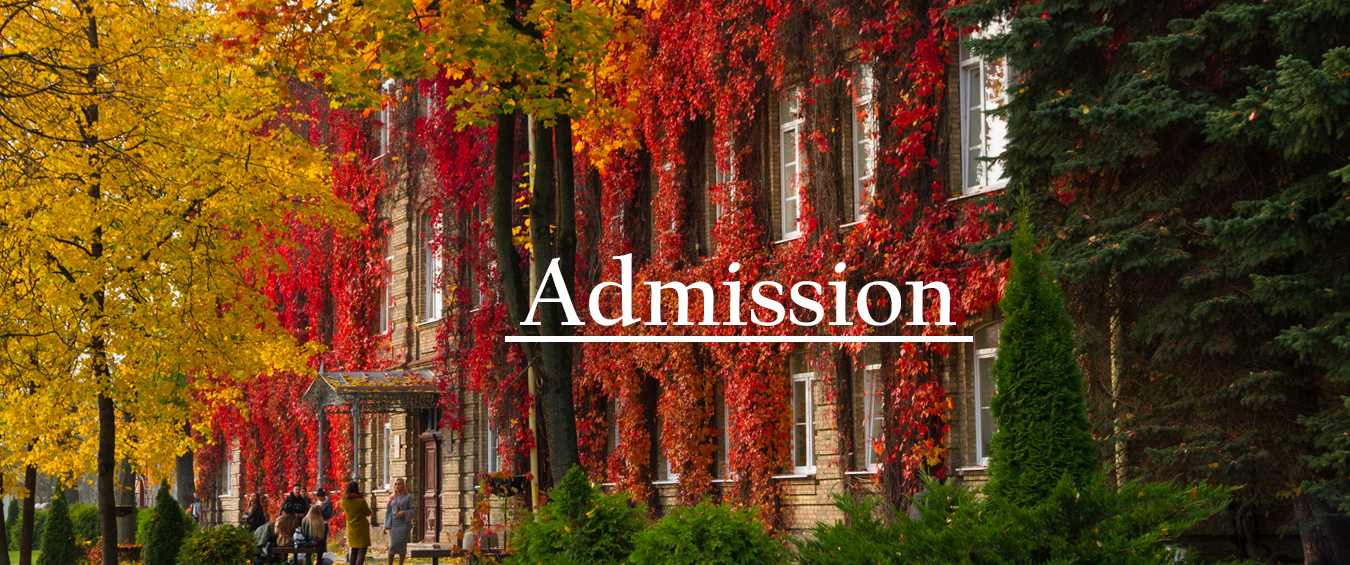
Yanka Kupala
State University of Grodno
Super User
Applicants of the Yanka Kupala state University of Grodno have possibility to submit documents and find out about enrollment online
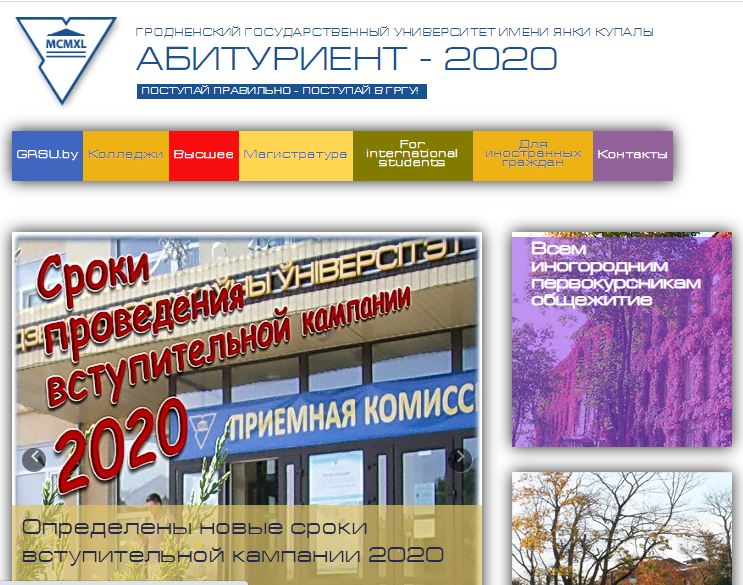
To submit documents to the admissions board, the applicant must register on the website abit.by where his personal account will be created automatically. Each applicant can fill out an application form and upload a photo for your student ID-card at any time. The service allows attaching electronic copies of documents for the enrollment. After receiving the entrance certificates, the applicant has only to write the results on the questionnaire.
After passing the procedure of verification of documents by the admissions board, the applicant can print out the application, contracts for preparation and copies of documents necessary for the personnel file. The applicant have to register in the electronic queue previously , and after it he/she personally has to submit the original documents to the admissions board of the Yanka Kupala state University of Grodno in the period from July 25 to July 31 - for the budget form and from July 25 to August 15 - for the paid form of study. The results of the enrollment and the competition situation in real time will be able in the applicant's personal account.
Service "Digital admissions board ", created by staff and students of the university, gives the applicant opportunities not only to provide documents to the admissions office for previous checking, but also to get expert advice, read all university courses of the Yanka Kupala state University of Grodno and choose a course according to the entrance exams. On the platform, the applicant will be able to communicate online with deans and students of faculties, as part of a virtual tour – visit the buildings and faculties of the University, see the building of a new dormitory, and monitor the status of documents.
It should be noted that the admissions board at the Yanka Kupala state University of Grodno has been working in the virtual space for several years. Over the past years, students have been enrolled at the Yanka Kupala state University of Grodno via the electronic form: the applicant can see the result in the personal account in real time.
After enrolling in the virtual space of the university, each first-year student has their own personal account with all the necessary and up-to-date information: access to the educational portal, educational materials of courses, services of the the Yanka Kupala state University of Grodno, as well as the possibility to create a digital portfolio for the future employment.
The first graduates of the specialty "Customs business" were awarded diplomas of graduation of the Yanka Kupala state University of Grodno
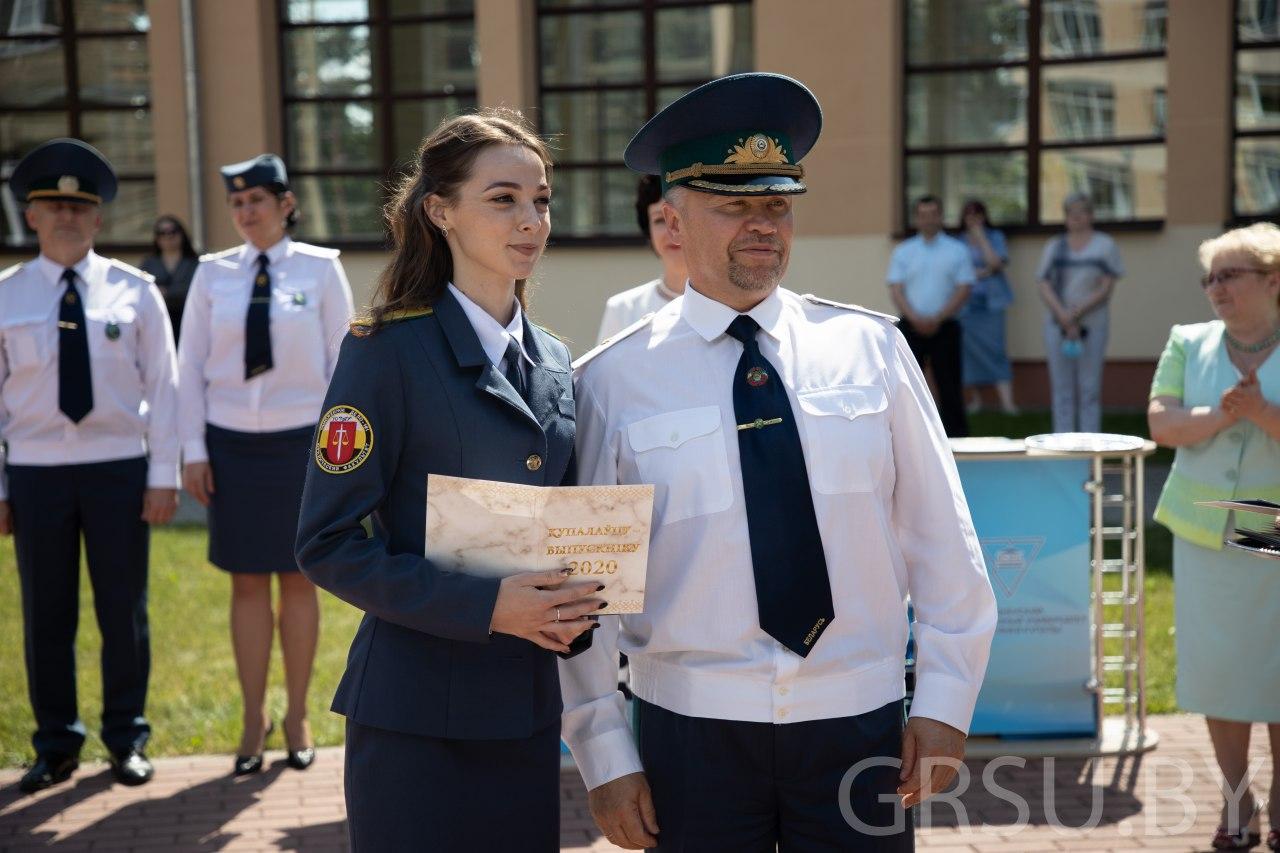
The solemn ceremony took place on June 25 on the University flag Square.
On this day, 27 graduates were awarded diplomas of higher education, ten of them with honors.
Irina Kiturko, rector of Yanka Kupala Grodno state University, congratulated the Kupala graduates:
– You will forever go down in the history of the Yanka Kupala state University of Grodno and Grodno regional customs as the first graduates of the specialty "Customs". Your graduation is special because it takes place in the anniversary year for the University and for the Grodno regional customs. Thank you for the four years we have been together! Remember that you are representatives of the Republic of Belarus, one of the first people who see coming to our country. First and foremost I wish you health and everything else is in your hands!
The rector addressed separate words of gratitude to the chairman of the state customs committee, state adviser of the customs service of the III rank Yuri Senko, head of the Grodno regional customs, state adviser of the customs service of the III rank Andrey Kovalchuk and all employees of the Grodno regional customs.
– All these four years, hand in hand, the university and the Grodno regional customs have been training specialists together. Representatives of the customs authorities took an active part in preparation of the curriculum for the subject area and were offered the possibility of doing traineeships. Therefore, our graduates really received a practice-oriented education – said Irina Kiturko and presented diplomas with honors, certificates for high academic achievements, active participation in research, social and creative activities of the university to graduates and letters of appreciation to their parents.
The guest of honor was the head of the Grodno regional customs, state adviser of the customs service of the III rank Andrey Kovalchuk, who headed the examination commission during the state examinations. He read out a congratulatory address from the chairman of the state customs committee of the Republic of Belarus, state adviser of the customs service of the III rank Yuri Senko. The message of congratulations says that the Belarusian customs is interested in highly qualified personnel who know their business, strive for success and professional growth: "With all my heart, with special attention, I congratulate graduates on successfully passing state exams and getting your degree of qualified customs specialists! Let soar to new heights and open the doors easily! And service in the customs authorities will bring only positive emotions, inspire good deeds and achievements in the name of economic security of our home country Belarus! Dear guys, your yesterday’s conscious choice to be customs officers will become a matter of life tomorrow! We are waiting for you in our confident and professional formation of customs officers!»
On his own behalf, Andrey Kovalchuk also congratulated the students on graduating from the university and noted that he was looking forward to meet the graduates of the Yanka Kupala state University of Grodno as employees of the Grodno regional customs and presented the graduate Ekaterina Golod with the gratitude of the state customs committee of the Republic of Belarus. Some students were awarded the gratitude of the head of the Grodno regional customs. By the way, most of the graduates were sent to their first jobs there.
In turn, the students thanked the university administration, employees of the Grodno regional customs, their teachers, scientific supervisors and parents for their support and guidance during their studies.
– Today is a very exciting day. It seemed like only yesterday we went to the uniýersity for the first time and got know each other. But four years have passed, we have found friends, and now we are getting degree as graduates, - Ekaterina Golod shared her emotions.
The names of the winners in the intra-University personal annual competition of student’s research became known at the Yanka Kupala state University of Grodno
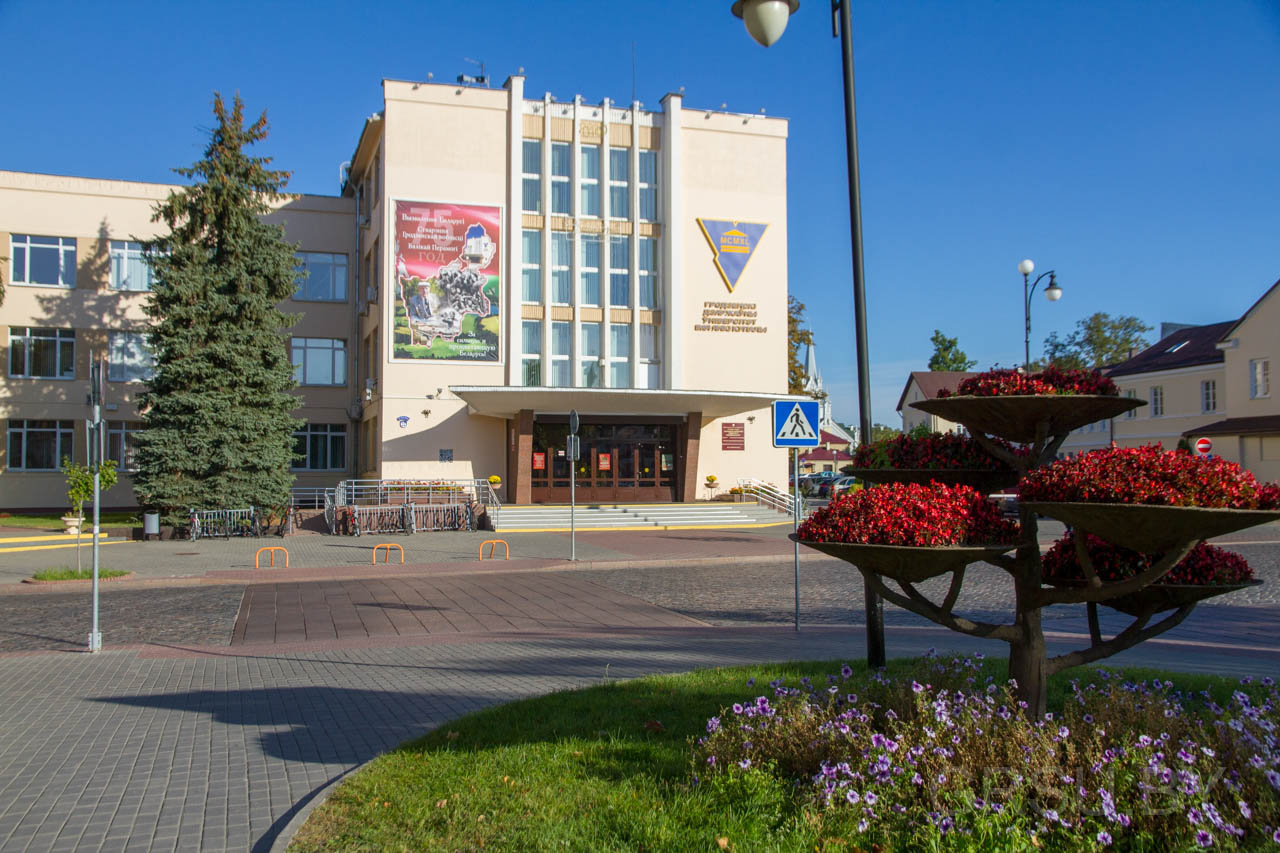
Victoria Medvedeva, a master's student at the faculty of mathematics and computer science, and Igor Borisevich, a 3rd-year cadet at the military faculty, were awarded diplomas of the first category and cash prizes of 216 rubles.
The 4th year student of the faculty of mathematics and computer science Polina Platova and the 4th year student of the faculty of law Bozhena Eremich were awarded diplomas of the II category with monetary prizes in the amount of 162 rubles. The competition commission determined the winners based on the results of the examination of applications submitted for participation in the competition.
It should be noted that the personal competition of research students is held under the auspices of the University's student scientific society and is aimed at activating the research work of university students, identifying and encouraging the most talented young scientists. The competition is attended by students who have achievements in priority areas of fundamental and applied research, high academic performance, and have shown social activity.
The competition is held in three stages. At the first stage, competitive selection and nomination of candidates is carried out by student scientific circles of departments and student scientific societies of faculties based on the recommendations of scientific supervisors. At the second stage, the nominated candidates are considered by the faculty councils, and at the third stage, the participants prepare the necessary documents.
To become a participant in the competition, a student must provide their scientific achievements: information about published scientific works, participation in the student scientific society, awards and incentives for research results, participation in research and government-funded topics, projects, grants, participation in scientific and practical conferences, seminars, and symposiums. It is also necessary to indicate your victories in international, national and university student scientific competitions and student olympiads, scientific internships, obtaining a patent for a scientific and technical invention, implementing the results of your own research in the curriculum or production process, issued by an act. When calculating results, the average academic performance score for the last two semesters is also taken into account.
At the Yanka Kupala state University of Grodno were chosen the best start-up projects
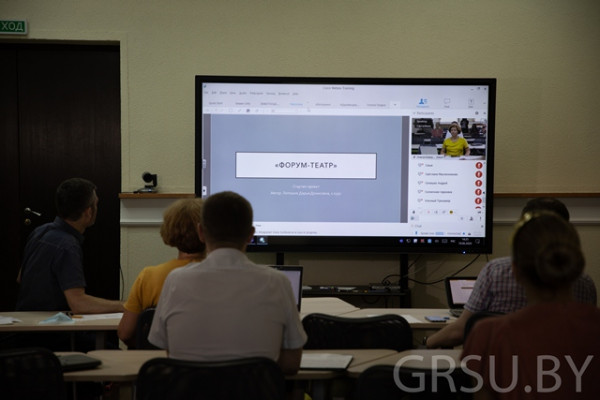
16 teams participated in the final startup battle of the III open competition "Innastart".
In 2020, the final of the competition was held online. The mechanism of the final, despite the remote participation of the finalists, remained the same: three minutes for the presentation, afterwards answers to questions from the contestants and the jury, which included teachers of the Yanka Kupala state University of Grodno, as well as businessmen and entrepreneurs from Belarus, Estonia, Lithuania and Ukraine.
Traditionally, the winners were named in four categories. So, in the category "Best startup project-PRODUCT", the first place was taken by the mobile app for improving the quality of sleep "HealSleep". In second place is the educational (pedagogical) business project "game-school Mary Poppins". The third place was shared by the project, which creates a database of audio fairy tales "Audio-trip into the world of fairy tales" and the linguistic database "Voices of Grodno".
The winner in the category "The best start-up project – SOCIAL INNOVATION" was the project, which creates a mobile application on the sports theme "Street simulator", in the second place took "Studio of projects and startups", the third place was shared by the database for graduates "Entrant" and the interactive educational theater in German "Forum-theater".
The team that presented the idea of developing and selling devices, which serves motorcycles, was the first in the category "The best startup project-TECHNOLOGY". The second place took the idea of creating parking facilities using solar energy for electric vehicles, the third place was taken by the creators of the chatbot for legal advice "Life-line" and courses for sports scouts "PRO SCOUT". In the nomination "The best startup project – SERVICE” was the first children's environmental studio "INVENTA", the second app "Falconway", the third place was shared by event Agency "Like" and "ZD PHOTOGRAPHY".
The winners and prize-winners of the IV open competition of student startup-projects "Innastart" were awarded prizes, certificates for free consultation in the scientific and technological park of the Yanka Kupala state University of Grodno and the opportunity to use its infrastructure and services.
It should be reminded that the competition was held in several stages. The students attended educational trainings from experts in the field of business, came up with and correctly framed their ideas, after which the jury, which included teachers of the Yanka Kupala state University of Grodno, representatives of enterprises and organizations of Grodno, evaluated the demand, relevance, practical feasibility, competitiveness of the project, as well as the availability of a justified business model of the project. By the way, about 40 applications were submitted for participation.
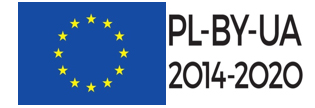
“This project has been funded with support from the European Commission. This publication [communication] reflects the views only of the author, and the Commission cannot be held responsible for any use which may be made of the information contained therein.”
Program website
Status: active
Project partners:
- Yanka Kupala State University of Grodno (Belarus) – project coordinator
- University of Bialystok (Poland)
Total budget: 38130 euro
Duration: 12 months
Overall objective of the project: Promotion of local culture and history by the development of cross-border region through the design of a brand-new tourist product (the route "Orzeszkowa's life and work paths") in Grodno, as well as the improvement of the already existing one ("Zamenhof's route in Bialystok") in Bialystok.
Specific objectives
- Conduct collaborative research on the value of different places in Grodno and Bialystok connected to Orzeszkowa's and Zamenhof's lives and works in order to develop a proper promotion system for their tourist routes.
- Improve the marketing of the cross-border area via designing and installing of information boards at the key points of the tourist route "Orzeszkowa's life and work paths" which will include places in Grodno, Grodno and Shchuchyn regions connected with the life and works of the Polish author.
- Promote the cross-border region among its inhabitants and foreign tourists by creating tourist booklets and project web-site, as well as training specialists capable of providing cross-border bilingual Belarusian-Polish excursions
21.08.2020 - Students and staff of Yanka Kupala State University are invited to the IX World Student Rowing and Canoeing Championships
20.06.2020 - Yanka Kupala State University invites you to participate in the international distance educational marathon “Kupala projects 2020”
12.06.2020 - The third international scientific and practical conference "Actual problems of personality psychology and social interaction: development of psychological education and science in Grodno region" will be held at Yanka Kupala State University
11.06.2020 - The third international scientific and practical conference "Actual problems of personality psychology and social interaction: development of psychological education and science in Grodno region" will be held at Yanka Kupala State University
Photo FACT: Volunteers of the "Good heart" detachment of Yanka Kupala State University joined the environmental campaign “River Cleanup”
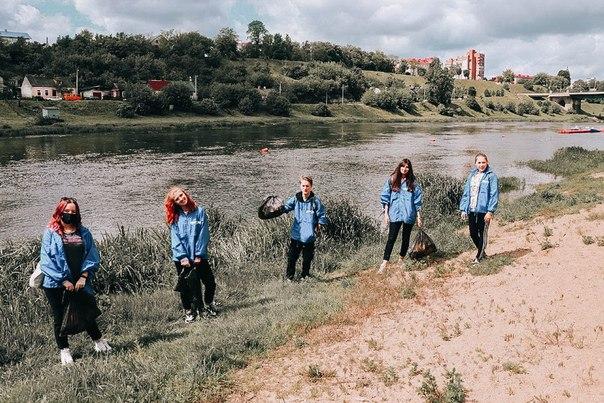
As part of an international initiative, Kupala students were engaged in cleaning the coastal zone of the Neman river.
An international project to restore order near reservoirs started in 2017 and was aimed at cleaning the banks of the Rhine. Belarus is participating in an environmental flashmob for the first time. In 2020, hundreds of activists of the Grodno and Minsk regions, including students of the Yanka Kupala Grodno state University, simultaneously went to the banks of the Neman river to restore order on the coastal territory.
